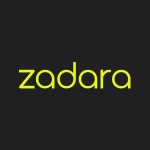What is our primary use case?
Our NetApp storage array, nearing its end of life, prompted us to seek a replacement. We aimed to migrate NFS, CIFS (SMB), and SIP shares to a new platform. Initially, we considered a Windows file server, but the Nutanix Unified Storage file offering proved more appealing. However, setting up Nutanix files required a dedicated server, and we used Robocopy jobs to transfer workloads to the new platform.
How has it helped my organization?
Nutanix Unified Storage boasts impressive flexibility. It offers extensive capabilities and built-in continuity, ensuring minimal disruption to workloads during updates. Unlike Windows servers, where applying updates or security patches necessitates rebooting and potential user downtime of five to 30 minutes, Nutanix Files seamlessly handles updates. During an update, user requests are automatically directed to another node while the original node reboots and sequences, ensuring a smooth and transparent experience for users.
Resiliency is about maintaining functionality despite setbacks. During our installation, we had three different file servers built with redundancy. When we tested this by powering down one server completely, users didn't experience any change in file accessibility.
I've seen demos of Data Lens, but it's not currently deployed in our environment. Nutanix United Storage is holding it in development and testing until additional features become available. However, I recognize its potential, particularly for specific notifications like unusual file activity, such as encryption or large-scale downloads. The snapshot technology offers the advantage of swift recovery within hours or minutes, compared to days or weeks with traditional methods.
One of the key advantages of Nutanix Unified Storage is its resilience, which allows us to perform updates without causing disruptions to users. This is crucial for our global organization, as any downtime would affect employees accessing files anywhere from Great Britain to India. With Nutanix, we can perform maintenance without worrying about complaints due to inaccessibility. We initially encountered the benefit of this resilience when we first implemented updates. While it was still in a testing phase and files weren't accessible to the entire company, we grasped the power of seamless updates for our globally distributed teams.
Unifying everything to Nutanix makes great sense. We no longer have to deal with multiple vendors. For us to have different workloads running. At one time, we had three different storage vendors for different application uses.
Three years ago, I was frustrated with the user permission management process for Nutanix files. It necessitated using an MMC plugin for Windows. Thankfully, newer versions, like our current version 4.4, have streamlined this management by unifying and integrating it into the overall solution.
Nutanix Unified Storage helps our organization remove storage silos. It allows us to create diverse file repositories, eliminating the need for separate tiers of storage. Additionally, we can set distinct policies based on the specific storage requirements of each repository.
Nutanix Unified Storage integrates seamlessly with other Nutanix solutions, presenting a unified view through Prism Central's single pane of glass. This centralized console simplifies operations, eliminating the need to navigate across multiple interfaces for information or management tasks.
What is most valuable?
With the current version of Nutanix Unified Storage, we've implemented a new feature called Data Lens that provides powerful capabilities for reporting file usage and identifying abnormal trends. These trends could include unusual file deletions, large-scale file access events, or potential indicators of cyberattacks like ransomware. Additionally, this data lens can help detect malicious insider activity, such as a disgruntled employee downloading sensitive company information before termination. The real-time alerts generated by this system enable us to swiftly address and mitigate such threats.
What needs improvement?
The feature request I have is for the consistent improvement of how user account permissions are assigned in Nutanix Unified Storage. While there have been vast improvements over the last three years since I began using it, there's still some additional functionality I'd love to see. I believe their team is working towards those goals, but I understand that not everything can be implemented at once, and progress takes time.
For how long have I used the solution?
I have been using Nutanix Unified Storage for three years.
What do I think about the stability of the solution?
I've only experienced one instance of downtime, and even that wasn't caused by Nutanix. It was a network issue. This underscores the stability of Nutanix Unified Storage. I haven't encountered any other problems with it. If any concerns arise, we can always reach out to support for a health check. They typically respond quite promptly.
What do I think about the scalability of the solution?
Nutanix Unified Storage is indeed highly scalable. With just a few clicks, we can deploy another worker VM, and the solution seamlessly scales to meet our growing needs.
How are customer service and support?
Technical support is generally quick to respond to P3 requests. Their standard response time is within eight to twelve hours, although I usually receive responses much sooner than that. The benefit of their global support network is that even if we call from the US at midnight, there's a good chance we'll reach someone in Australia who can help and is happy to do so.
How would you rate customer service and support?
Which solution did I use previously and why did I switch?
We were previously using NetApp for our storage needs. However, when we decided to switch to a hyper-converged platform as part of a broader platform change, we needed to move away from NetApp. Finalizing our purchase with Nutanix was an easy decision because it streamlined the process considerably. The fact that Nutanix offered file services was also a significant factor in our choice.
How was the initial setup?
The initial setup was straightforward. While some network and firewall configuration was necessary, the installation wizard clearly outlined the steps. I was able to complete the installation myself within an hour, thanks to the helpful Nutanix documentation.
The migration, however, took several months due to the large amount of data involved and the need to coordinate with other departments and teams. Since the data resided in existing storage, we continued running our Robocopy jobs to maintain synchronization. This meant we had to carefully choose downtime windows compatible with business operations for the cutover, which ultimately extended the migration timeline.
Two people were involved in the full deployment process.
What about the implementation team?
The implementation was completed in-house.
What was our ROI?
Using Nutanix as a whole, I've seen a significant return on my time investment. I spend significantly less time troubleshooting, configuring, and updating. It's been much easier, and it's allowed me to reclaim my nights and weekends.
What's my experience with pricing, setup cost, and licensing?
Nutanix Unified Storage pricing is reasonable.
Which other solutions did I evaluate?
We were initially considering VMware as a hyper-converged solution, similar to Hyper-V. However, the licensing costs for VMware were significantly higher than what we found with the Nutanix solution.
What other advice do I have?
I would rate Nutanix Unified Storage a ten out of ten.
I find the security of Nutanix Unified Storage to be on par with industry standards. Additionally, the various security reports and analytics offered by Nutanix help me ensure that we are following best practices and maintaining a secure environment.
For those considering Nutanix Unified Storage for their organization but concerned about the cost, I recommend visiting the Nutanix website to test drive the solution. For specific pricing information, speak with the local reseller to explore available options.
The only maintenance required is for the software updates.
I recommend reading the documentation and taking advantage of the free test drive before migrating your existing storage to this new platform. Be sure to create a migration plan to ensure a smooth transition.
Which deployment model are you using for this solution?
On-premises
Disclosure: PeerSpot contacted the reviewer to collect the review and to validate authenticity. The reviewer was referred by the vendor, but the review is not subject to editing or approval by the vendor. The reviewer's company has a business relationship with this vendor other than being a customer: Reseller










